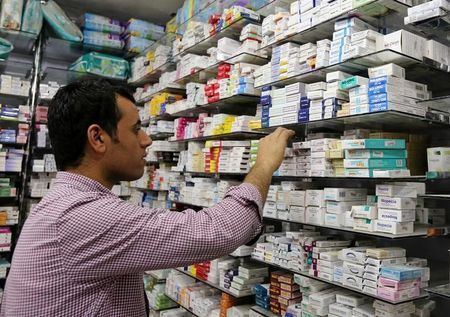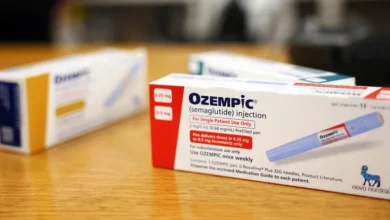
Sources with the Division of Pharmaceutical Industry of the Federation of Chambers of Commerce revealed the start of meetings between the heads of pharmaceutical companies and Ahmed Emad, the Minister of Health, 3 days ago, to find solutions to the problems of medicine shortages.
The minister suggested an increase from 10 to 15 percent in the varieties of each company in exchange for ending the crisis, said the sources.
The minister held meetings in recent days with the heads of 10 companies, in a bid to fill in the shortage of more than 900 items on market, especially liver, kidney, brain, nerves, and blood pressure drugs.
The proposal has raised the ire of a number of companies, who described the decision as brutally unfair because it will not make up for the losses, as the prices of raw materials have increased by 100 percent following the floatation of the pound; this increase will also not make up for the increaes in electricity and gas bills and additional taxes paid by those companies, according to the sources.
"The ministry is in a state of confusion, and has no future vision for the pharmaceutical sector. If it continues with this mechanism, it will lead to large deficits in important drugs on the market. It is impossible for companies to continue producing drugs that have a much higher cost than the price of sale," a president of an international company who attended the meeting said.
The company's president added that the companies have not notified the Ministry whether they approve of the minister's proposal. The increase in prices should be in accordance with the added cost of producing the medicines to rescue the pharmaceutical companies from losses.
The first shipment of shortage drugs will arrive in Egypt within two days at most, the spokesperson for the Ministry of Health Khaled Megahid told Al-Masry Al-Youm on Friday.
Megahid added that the shipment will include shortage drugs that the government has imported via the Egyptian Pharmaceutical Trading Company, as well as special blood derivatives and pharmaceutical oncology drugs.
He said that the rest of the imported shortage drugs, numbering about 146 drugs in all, will reach the market over the coming period.
Megahid added that Health Minister Ahmed Emad has formed a committee from his advisors to hold meetings with pharmaceutical companies to study their demands and refer them to the cabinet.
Meanwhile, Emad has asked Finance Minister Amr al-Garhi to abolish the Value Added Tax (VAT) on imported materials used for manufacturing medicines.
In the wake of Egyptian pound flotation, the country is suffering an acute shortage of medications, especially those for the treatment of leukemia, kidney failure, diabetes, Hepatitis C, blood clotting, muscle atrophy and those constituting hormone therapies.
Edited translation from Al-Masry Al-Youm



